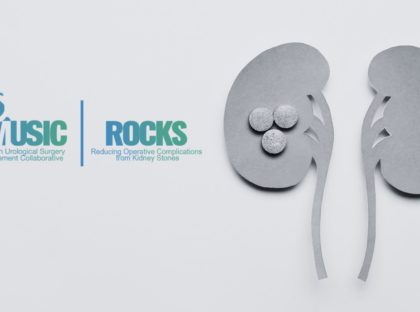Pain management is a critical component of effective care for patients. Amidst the opioid epidemic, however, pain management is highly nuanced for clinicians balancing their patient’s needs and wishes with state and hospital guidelines for prescribing. Although these guidelines are designed to curb opioid misuse—over 10 million patients misused prescription opioids in 2019—they are sometimes at odds with patient-based considerations. One research article, for example, found that, “many physicians expressed appreciation for opioid prescribing guidelines and simultaneously voiced concern about opioid restrictions that obviate the application of clinical reasoning.” In addition, some studies have called into question whether policies aimed at curbing overprescribing of opioids have a meaningful effect. One study noted that joint replacement surgeries from 2014 to 2017 saw increases in the percent of patients receiving opioids without clinically meaningful improvements in post-operative pain.
Therefore, when non-opioid pain management methods emerge in the medical literature as efficacious, there is a significant potential for impact coupled with great interest in its feasibility. Around the time the opioid epidemic was declared a public health emergency by the U.S. Department of Health and Human Services, one such pain management method emerged within medical research: virtual reality therapy.
Virtual reality therapy entails wearing virtual reality goggles and participating in an immersive, three-dimensional computer environment that distracts the patient from their pain. In some instances, it was proven effective for decreasing opioid use during painful wound procedures, and in other cases for helping patients learn how to manage chronic pain and achieve decreases in reported pain scores. Amid this excitement, one research team endeavored to measure the, "cost and effectiveness thresholds [virtual reality] therapy must meet to be cost-saving as an inpatient pain management program." They found that inpatient virtual reality therapy could reduce costs for a hospital if the length of stay was reduced because of its use; reductions in opioid use and related reimbursements were not enough in isolation to overcome the costs of virtual reality. This study found cost savings achieved in 89% of the trials it investigated.
Once studies have determined that a treatment is effective, the next question is whether it is effective for a more heterogeneous population—often, the patients included in medical research are white, relatively advantaged patients with higher-than-average education and literacy. With a growing focus in healthcare on health equity, it is important to determine whether virtual reality therapy also has potential in diverse patient populations. Just two months ago, a study from UC San Francisco was published that investigated the use of virtual reality among frontline pain management clinicians, particularly those in safety-net healthcare settings. The study found that clinicians and leadership in these healthcare settings were very interested in virtual reality therapy as a safer alternative to opioids. However, they also noted a need for significant tailoring for various cultures, languages, and technical abilities. They also expressed concerns about obtaining reimbursements and integrating the technology into complex workflows.
Virtual reality may offer potential savings as well as greater patient satisfaction for some hospitals and health systems right now. For others, it may take time and collaboration before virtual reality therapy is a feasible pain management alternative. The MVC Coordinating Center is interested in documenting how its members are approaching pain management and rising technologies like virtual reality. If your hospital or physician organization has found success in offering virtual reality therapy to patients or implemented other successful opioid-reduction interventions, please share your story with the MVC Coordinating Center (michiganvaluecollaborative@gmail.com) so other MVC members may benefit from your experience.
